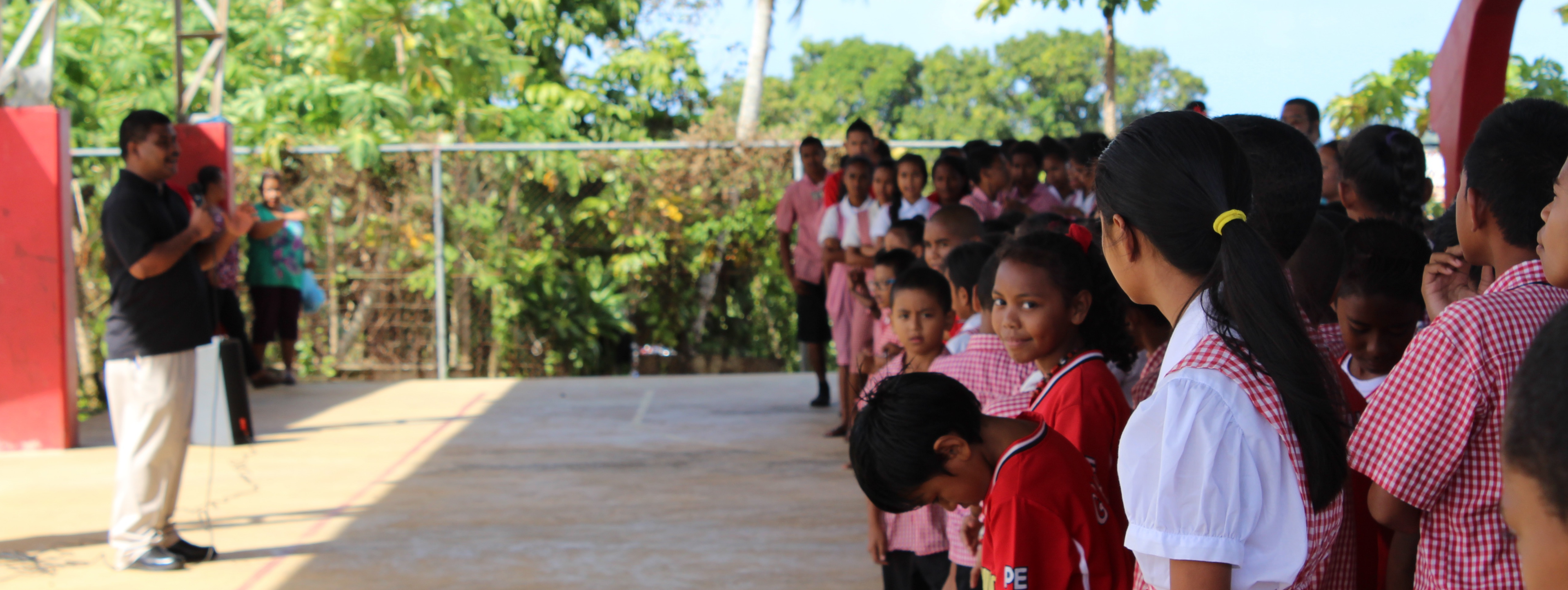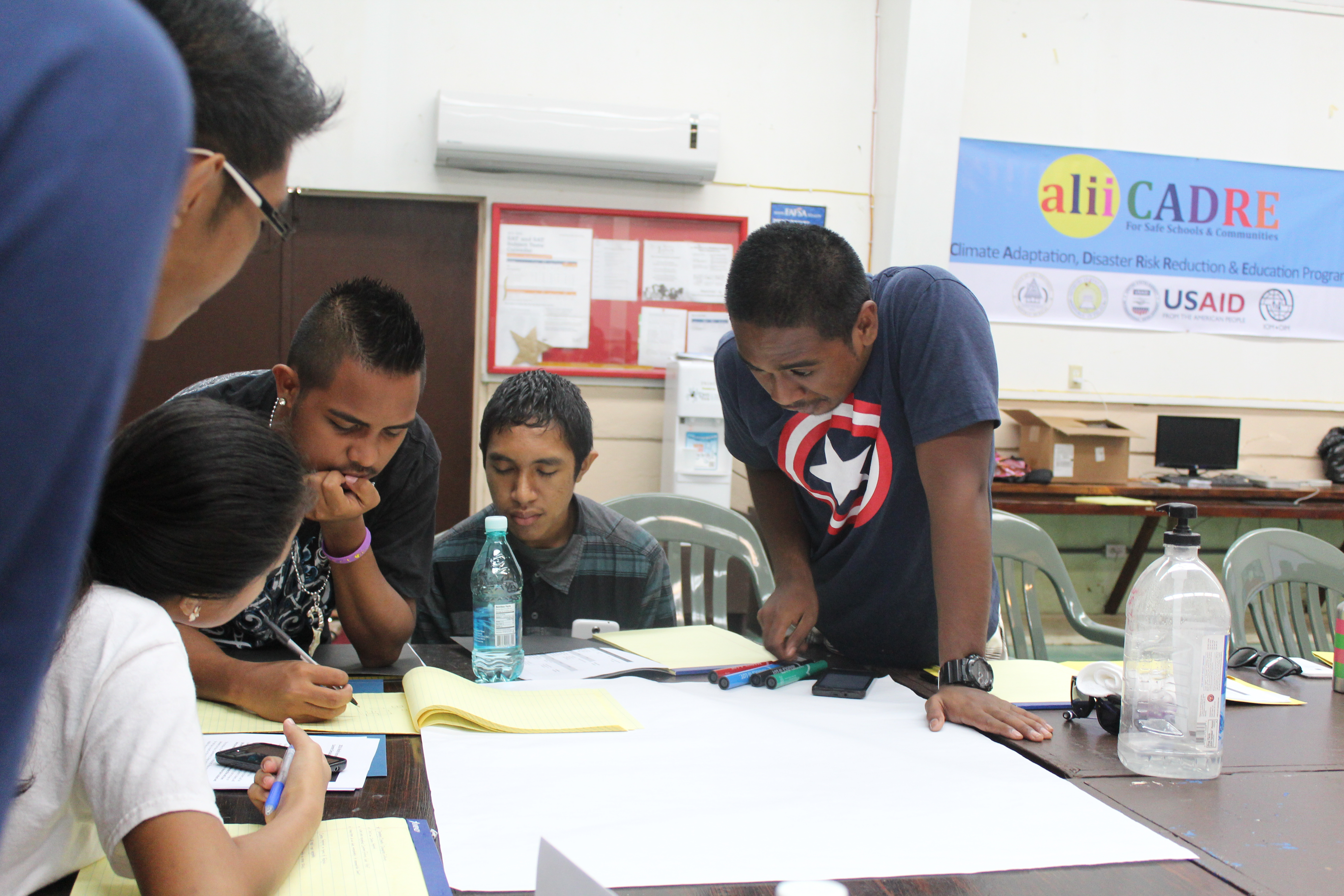Disaster Risk Reduction

Like many other Pacific Islands states, Palau has high levels of risk for natural hazards, including tropical storms, typhoons, droughts and tidal surges, as well as earthquakes and volcanic activities. Due to its small land area and low elevation, Palau is particularly vulnerable to the impacts of climate change and environmental degradation, including rising sea levels and related inundations and saltwater intrusion into underground aquifers. The high frequency and expansiveness of natural disasters makes the island state vulnerable to displacement prompted by infrastructure damage, water shortages, crop failures and wildfires. Therefore, disaster risk reduction and resilience activities are indispensable to help communities and governments prevent or minimize the impact of disasters and strengthen resilience at community levels.
Paying particular attention to at-risk communities and migrant populations, IOM’s disaster risk reduction and resilience activities seek to reduce disaster-induced displacement through prevention and preparedness measures, mitigate the impacts of disasters through risk-informed response, and strengthen resilience by “building back better” in recovery and reconstruction. Its key activities in the area include hazard mapping and assessments, community-based disaster risk management, resilient livelihoods development, early warning systems, disaster risk reduction policy and strategy, and disaster emergency response.
In the past, in coordination with the Ministry of Health and civil society partners, IOM supported climate change adaptation initiatives in partnership with the Ministry of Education through the Alii Climate Adaptation Disaster Risk Reduction and Education Program (Alii CADRE). Providing critical support to at-risk communities, the Alii CADRE program supported sustainable solutions for resiliency in vulnerable schools and communities through community-based initiatives and education in Palau.
Capitalizing on its extensive technical expertise in climate change adaptation and disaster risk reduction, IOM Palau has worked with local communities and partners to enhance public infrastructures and make them more resilient to natural disaster. Its past activities in Palau include the development of rainwater collection and storage system in schools and communities without stable water sources and installation of typhoon shutters at community facilities.
IOM has also contributed to the country’s risk communication and community engagement capacity by creating a plan for state-level emergency communication systems and restoring emergency VHF communications equipment. Furthermore, with key government stakeholders, such as the National Emergency Management Office (NEMO), IOM contributed to the strategic development of emergency management plans and policies by developing Community Emergency Management Plans and community engagement activities on disaster preparation and response.

On-Going Projects
- Palau – Emergency Preparedness and Enhanced Resilience (PEPER) (Donor: USAID/OFDA)
Past Project(s)
- Alii Climate Adaptation Disaster Risk Reduction and Education (Alii CADRE) Program (2014-2019) (Donor: USAID/OFDA
- Restoring Emergency VHR Communications in the Republic of Palau (2018-2019) (Donor: Government of New Zealand)